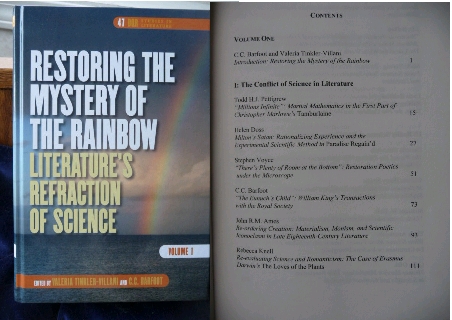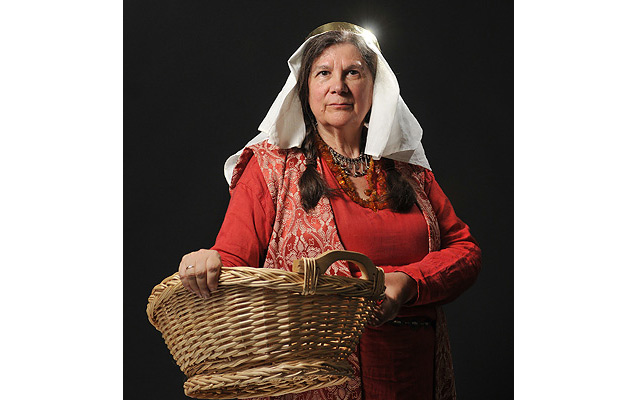 Artifact: “Re-ordering Creation: Materialism, Monism, and the Scientific Iconoclasm of Eighteenth Century Literature”: Restoring the Mystery of the Rainbow: Literature’s Refraction of Science.
Artifact: “Re-ordering Creation: Materialism, Monism, and the Scientific Iconoclasm of Eighteenth Century Literature”: Restoring the Mystery of the Rainbow: Literature’s Refraction of Science.
Reflection: In 1999 I attended an international conference on Literature and Science at the University of Leiden, in Leiden, Holland. The conference was a seminal moment in the evolution of my teaching, and with the publication of the proceedings in Restoring the Mystery of the Rainbow: Literature’s Refraction of Science, a valued contribution to the practice of teaching.
In “Re-ordering Creation . . .” my main focus was on the circle of scientific writers in England and France who were intersecting the ideas of materialism (a specific philosophic view of science based in ‘naturalism’) with literary productions and social change; specifically, John Thelwall and Erasmus Darwin – two minor English poets of the late-18th century – figured prominently in this study. During the period in which I delivered the paper, discussions in academic circles on the topic of scientific hybridity fusing reform literature were limited, and in this sense, and as far as I am aware, not many new contributions have been made. I am considering continuing this work as a graduate student, as I feel the research is invaluable for assisting students of all ages to understand more deeply the intricacies of how scientific thought affects contemporary thought.
In terms of future teaching, the lessons I learned from both delivering this paper, meeting other academics involved in this field of research, and publishing with an international publisher, have left an indelible effect upon the way in which I teach humanities as a whole.
________________________________________________________________
 Artifact: Courier Newspaper Summer 2010 – Sharon Burrows and the Society for Creative Anachronism.
Artifact: Courier Newspaper Summer 2010 – Sharon Burrows and the Society for Creative Anachronism.
Reflection: I met Sharon Burrows after reading this article done on her and the Society for Creative Anachronism by Tom Sandborn. Sharon is a specialist in page illumination for replicating medieval texts – an art form which is not easily acquired through any formal institutions of learning that I am aware. I have asked Sharon if she would come to schools to teach secondary students, as I believe students will value learning how to make primary colours using local elements. Such practice will assist students build confidence and independence, while keeping a most interesting tradition from the middle ages.
